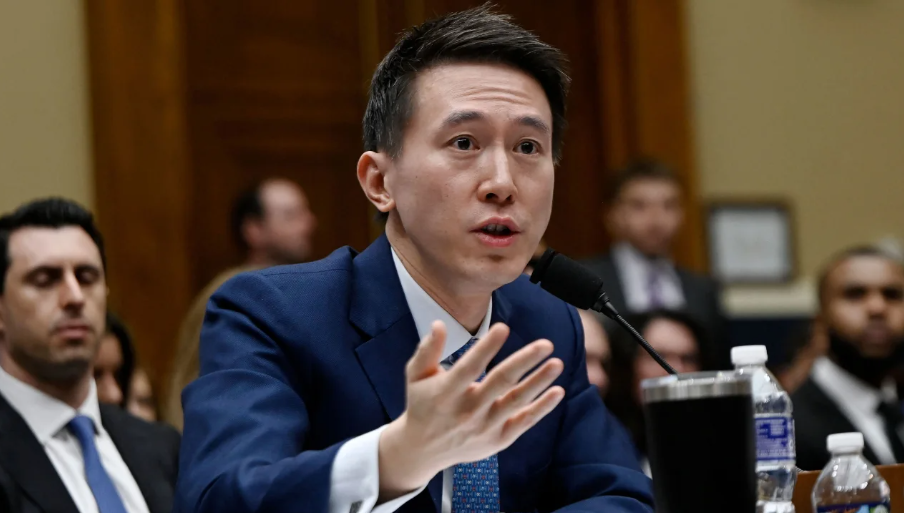Binance, the world’s largest cryptocurrency exchange, doesn’t want to be called a Chinese company.
It was founded in Shanghai in 2017 but had to leave China just a few months later because of a major regulatory crackdown on the industry. Its origin story remains an albatross for the company, says CEO Changpeng Zhao, better known as CZ.
“Our opposition in the West bends over backward to paint us as a ‘Chinese company,’’he wrote in a blog post last September. “In doing so, they don’t mean well.”
Binance is one of several privately owned, consumer-focused companies that are distancing themselves from their roots in the world’s second largest economy even as they dominate their respective fields and reach new heights of international success.
In recent months, PDD — the owner of online superstore Temu — has moved its headquarters nearly 6,000 miles to Ireland, while Shein, the fast fashion retailer, has moved to Singapore.
The trend comes at a time of unprecedented scrutiny for Chinese businesses in the West. Experts say the treatment of companies such as TikTok, owned by Beijing-based ByteDance, has served as cautionary tales for businesses deciding how to position themselves abroad and has even led to the recruitment of foreign executives to help curry favor in certain markets.
“Being [seen as] a Chinese company is potentially bad for doing global business and comes with a variety of risks,”said Scott Kennedy, a senior adviser and trustee chair in Chinese business and economics at the Center for Strategic and International Studies.
‘It may affect your image, it may affect how regulators around the world literally treat you and your access to credit, markets, partners, in some cases land, raw materials.’
Where are you really from?
Temu, the online marketplace that has grown rapidly in the United States and Europe, casts itself as a US company owned by a multinational firm. The firm is Boston-based and its parent, PDD, lists its head office as Dublin. But it wasn’t always the case.
Until earlier this year, PDD was headquartered in Shanghai and known as Pinduoduo, also the name of its hugely popular e-commerce platform in China. But in the last few months, the company changed its name and moved to the Irish capital, without providing an explanation.
Shoppers take photos at the Shein pop-up store in New York, US, on Friday, Oct. 28, 2022. Shein, the online retailer that has turbocharged the global fast-fashion industry, is planning to deepen its foothold in the US as its sales to American shoppers continue to soar, the Wall Street Journal reports.
‘Too good to be true?’ As Shein and Temu take off, so does the scrutiny
Shein, meanwhile, has long played down its origins.
In 2021, as the online fast fashion giant gained popularity in the United States, its website did not mention its backstory, including the fact that it first launched in China. Nor did it say where it was based, stating only that it was an ‘international’ firm.
Another Shein corporate webpage, which has since been archived, lists frequently asked questions, including one about its headquarters. The company’s answer outlined ‘key operation centers in Singapore, China, the US and other major global markets,’ without directly identifying its main hub.
Now, its website clearly states Singapore as its headquarters, alongside ‘key operation centers in the US and other major global markets,’ without mentioning China.
As for Binance, there are questions about whether its lack of a physical global headquarters is a deliberate strategy to avoid regulation. In addition, the Financial Times reported in March that the firm had obscured its links to China for years, including the use of an office there until at least the end of 2019.
In a statement this week, Binance told CNN that the company “does not operate in China, nor do we have any technology, including servers or data, based in China.”
“While we did have a customer service call center based in China to service global Mandarin speakers, those employees who wished to remain with the company were offered relocation assistance starting in 2021,”a spokesperson said.
PDD, Shein and TikTok did not respond to requests for comment on this story.
It’s easy to see why companies are taking this approach.
“When you talk about corporate entities that are seen as being in one way or another connected to China, you sort of start opening this can of worms,”said Ben Cavender, a Shanghai-based managing director of strategy consultancy China Market Research Group.
“There’s almost this automatic take by the US government that these companies are potentially a risk,” because of the inference that they could share data with the Chinese government, or act in a nefarious capacity, he added.
Huawei was the primary target of the political backlash a few years back. Now, consultants point to TikTok, and the ferocity with which it has been questioned by US lawmakers over its Chinese ownership and potential data security risks.
The thinking goes that since the Chinese government enjoys significant leverage over businesses under its jurisdiction, ByteDance and thus indirectly, TikTok, could be forced to cooperate with a broad range of security activities, including possibly the transfer of data about its users. The same concern could, in theory, apply to any Chinese company.
Post time: May-06-2023






